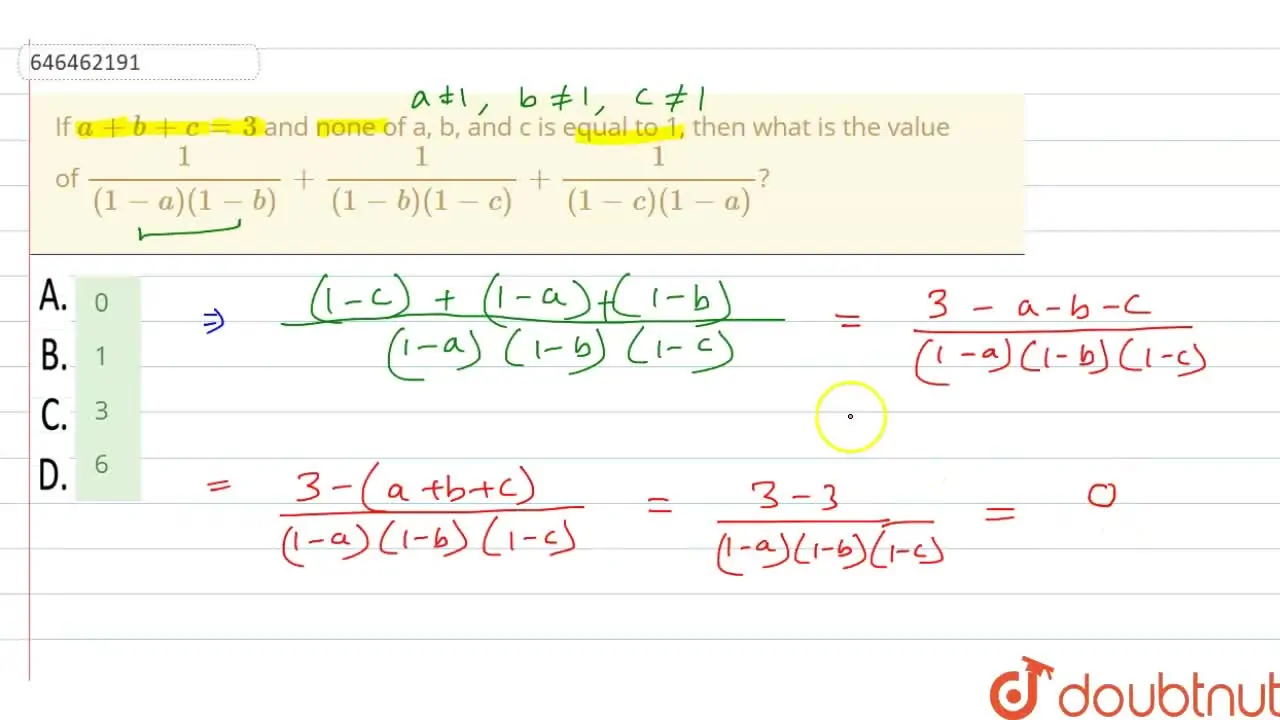If a+b+c=3 and none of a, b, and c is equal to 1, then what is the value of 1(1−a)(1−b)+1(1−b)(1−c)+1(1−c)(1−a)?
0
1
3
6
The correct Answer is:A
Step by step video, text & image solution for If a + b + c =3 and none of a, b, and c is equal to 1, then what is the value of (1)/((1 -a ) (1-b))+ (1)/((1 -b ) (1-c)) + (1)/((1 -c) (1-a))? by Maths experts to help you in doubts & scoring excellent marks in Class 14 exams.
Related Playlists
Similar Questions
If a + b + c =0 then the value of
1(a+b)(b+c)+1(b+c)(c+a)+1(c+a)(a+b)View SolutionIf a + b + c =0 then the value of
1(a+b)(b+c)+1(b+c)(c+a)+1(c+a)(a+b)View Solutionif a2=b+c,b2=a+c,c2=b+a then what will be the value of 1a+1+1b+1+1c+1
View SolutionIf a+b+c=0, then find the value of 1(a+b)(b+c)+1(a+c)(b+a)+1(c+a)(c+b).
View SolutionIf a,b,c are in H.P., then the value of
(1b+1c−1a)(1c+1a−1b) isView SolutionIf (a−b)=1(b−c)anda≠b≠c then the value of 1(a−b)(b−c)−1(b−c)(c−a)−1(c−a)(a−b) is
View SolutionIf a + b + c =0 then the value of
1(a+b)(b+c)+1(b+c)(c+a)+1(c+a)(a+b)View SolutionIf a−(1a)=b,b−(1b)=candc−(1c)=a then what is the value of (1ab)+(1bc)+(1ca) ?
View SolutionIf (a+b) : (b+c) : (c+a) = 7 : 6 : 5 and a+b+c = 27, then what will be the value of 1a:1b:1c ?
यदि (a+b) : (b+c) : (c+a) = 7 : 6 : 5 तथा a+b+c = 27, है, तो 1a:1b:1c का मान क्या होगा ?View Solutionif a2=b+c,b2=a+c,c2=b+a then what will be the value of 1a+1+1b+1+1c+1
View Solution


